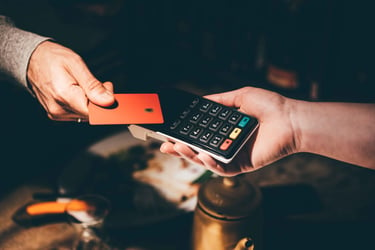To sell alcohol, your business must carry the liquor liability coverage required by your state or local jurisdiction. Unfortunately, the cost for this insurance keeps rising, leading to increased financial pressure on the hospitality industry.
Just one liquor liability claim can place your business in fiscal jeopardy. Here’s a brief overview of the challenges, along with steps you can take to protect your establishment.
Understanding the liquor liability landscape
Many restaurants, bars, taverns, and venues are facing double-digit premium increases. Why? Over the past five years, liquor liability claim frequency and severity have grown significantly, along with the litigious environment.
Underwriters look at historical data to estimate future costs. With the rise of high-profile lawsuits and multi-million-dollar judgments, the historical data is no longer adequate for forecasting losses. As a result, fewer insurers are willing to underwrite liquor liability. And those who do are pricing the coverage conservatively.
Delayed reporting: the hidden risk
Liquor liability claims often emerge weeks or months after an injury occurs. Your state may have a required reporting timeframe and/or a statue of limitations on filing liquor liability lawsuits. Know the specifics for your jurisdiction, so you can plan accordingly.
For example, in Oregon, an injured party must provide written notice to the alcohol provider within 180 days of the incident in order to pursue a claim. Then, they have up to two years from the incident date to file a liquor liability lawsuit. Many plaintiffs wait until day 179 to provide the written notice and day 729 to file the lawsuit.
During that elapsed time, you may experience staff turnover. If you have security cameras and only keep the video footage for 30 days, important evidence may be long gone. How do you remember a specific patron from six months ago or two years ago?
The unpredictability and delayed reporting of liquor liability claims contribute to insurer’s reluctance to take on the risk.
Employee training: The cornerstone of your liquor liability defense
Employees are your first line of defense against potential liquor liability claims. Train them beyond state-required basics so they know how to:
- Prevent underage drinking through careful ID inspection
Some establishments are asking all patrons for ID, including 80-year-old grandmothers. But do your employees know the acceptable forms of ID? Can they spot a fake ID? Bring in an expert who can teach your workforce how to identify underage patrons. Also, let your staff know that serving alcohol to an underage patron is a fireable offense.
- Identify the signs of intoxication
Slurred speech and inability to walk in a straight line are obvious signs of impairment. But employees need training and practice to discern more subtle signs of alcohol, marijuana, or other drug use. If a bar hopper arrives, already under the influence, do employees know not to serve alcohol to the patron and to report the situation to a manager?
- Communicate effectively with patrons and managers
As a manager, you are “captain of the ship.” You have the final say on whether to deny alcohol service. Ask employees to come to you any time they have a question about whether to serve. Teach them what to say/not say to patrons and when to loop you into the communication. Show them what to do if a patron becomes angry or demanding.
- Document incidents
Once you cut someone off, document what you did, when, and why. Consistent documentation can make the difference in how a jury views your establishment.
Documentation: the key to your defense
Even establishments who are doing all the right things can find themselves named in a liquor liability lawsuit. This is why it’s crucial to document incidents thoroughly.
In a recent case, state police came into a bar within 48 hours of an incident, so the establishment knew about a potential liquor liability claim right away. The manager was able to secure video footage, point-of-sale data, and other documentation, which later proved pivotal in minimizing the claim. The bar had video of the specific table, knew exactly what they had served, and what the patron had consumed.
Do you have an incident log to document any liquor-related incidents, such as a brawl, dating violence, or other event? Write as much detail as possible about what happened, when, which server(s) witnessed the incident, etc. If you have video on premises, there needs to be a procedure to pull and store the video related to the incident. Similarly, you want to capture all the point-of-sale data related to the incident, so you have proof of what you served to the patron(s).
All employees need training on the documentation process and its importance. Check the incident log daily to make sure your team is documenting events thoroughly. If a claim occurs and you’re missing documentation, there will be a presumption of liability. In contrast, if you have video, an incident log, and point-of-sale data, you have a way to defend your business. Documentation can lessen the impact of a potential claim.
Establishing policies and controls to minimize liquor liability risk
Do you have written policies governing whether you give doubles or stop serving shots after a certain hour? Do your bartenders have specific procedures for communicating with one another — so if you deny service to Johnny, he doesn’t try to get a drink from a different bartender?
If you suspect a patron may have over-consumed, do you pay for a rideshare to get the person home safely?
Implementing best practices for managing liquor liability will not prevent lawsuits, but you position yourself for a better outcome. You want a jury (and your insurance company) to see that you consistently take well-thought-out precautions to keep your customers and community safe.
Find Rob Hoover on LinkedIn.
Find Rob Hoover on LinkedIn.
Or Visit https://www.risk-strategies.com/industries/real-estate/hospitality.
About the author
Rob Hoover is a national expert on hospitality insurance and risk management. In addition to designing comprehensive insurance programs, he writes, speaks, and consults on mitigating liquor liability risk.





